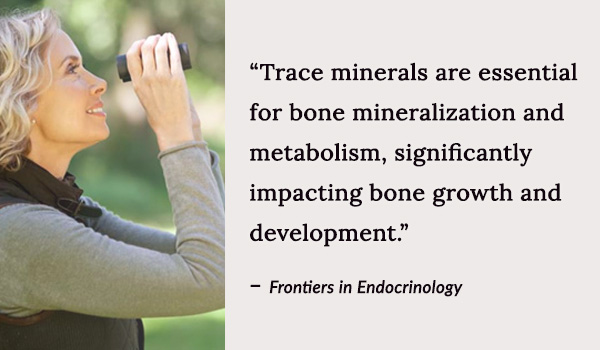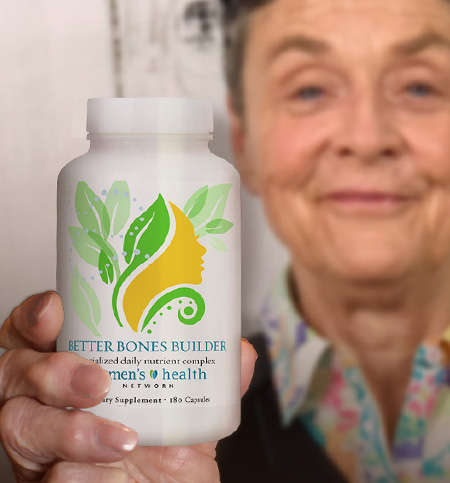Authored by Dr. Susan E. Brown, PhD
Most people aren’t aware of three important trace minerals that are essential for bone health — manganese, copper and boron. While only needed in small amounts, they make a huge difference for our bones.

Here’s what the research says:
Bone benefits of trace minerals manganese, copper and boron
Manganese
Manganese is needed for the functioning of several enzymes central to bone formation.
- Women with osteoporosis have 75% lower manganese than those without osteoporosis, according to studies.
- One study, which looked at 25 different variables, found that only manganese was significantly different between osteoporotic and non-osteoporotic women.
- Multi-nutrient studies have incorporated manganese supplementation and showed an increase in bone mineral density.
- Aim to get approximately 4 mg of manganese per day to support bone. Manganese citrate is the most bioavailable form of the trace mineral (and is the form included in Better Bones Builder).
Copper
Copper helps form collagen for bone and connective tissue, and low copper levels are associated with osteoporosis development.
- One early study found copper levels in elderly patients with hip fractures were significantly lower than those of matched controls.
- Another study of perimenopausal women who consumed 1 mg of copper daily reported spinal bone loss after supplementation.
- Copper intake for adults is ideal around 1 mg per day. Nearly three-fourths of US adults failed to consume even this tiny amount.
Boron
Boron is essential for bone growth, and it also supports other bone-building nutrients.
- Boron supplementation markedly reduces excretion of calcium and magnesium.
- Boron increases Vitamin D utilization.
- Boron also helps to reduce inflammation and protect against oxidative damage from heavy metals and other toxins.
- While there is no RDA for boron, researchers suggest a minimum intake of 3 mg a day and a maximum of 20 mg/day. Unfortunately most of us consume only ½ to 1 mg of boron daily.
Are you getting enough of these trace minerals for your bones?
If people don’t know about the importance of these trace minerals for bones, it probably comes as no surprise that most of us aren’t getting enough! Manganese, boron and copper are part of my Better Bones Builder formula in the amount you need to support your bone health. When choosing a health supplement for your bones, the research is clear that you should look for trace minerals on the label.









